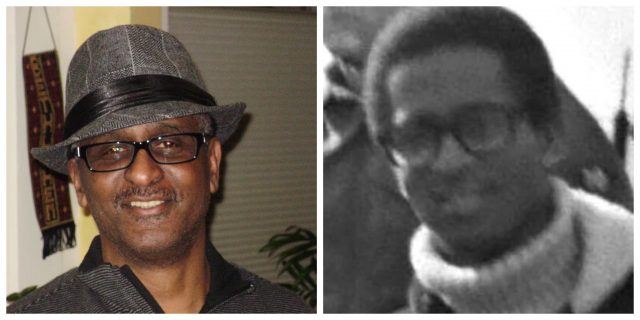 Gerald Lenoir remembers the Black Strike of 1969 as both a exhilarating and frightening experience as a Black student at UW-Madison. It marked the beginning of his life as an activist.
Gerald Lenoir remembers the Black Strike of 1969 as both a exhilarating and frightening experience as a Black student at UW-Madison. It marked the beginning of his life as an activist.
“I grew up in LA and I grew up in the Black Power and Civil Rights era, so my consciousness as a black person and black man came from that era,” he said in a telephone interview from his office in California.
When Lenoir arrived in Madison in the Fall of 1966, he remembers the conversations students were having about Black identity and the African diaspora. He said the university had just begun recruiting Black students in a big way.
Back then, Lenoir said his generation understood terms like “Black” and “People of Color” as political rather than descriptive. He said these words were used to inspire movements and political activism.
“This was the same year Stokely Carmichael began talking about Black Power, and my generation was energized by that,” Lenoir said.
Carmichael had just been named the chairman of the Student Non-Violent Coordinating Committee (SNCC). Lenoir said there were over 150 Black organizations across the country the next year and students began protesting on hundreds of college campuses from 1968 until 1972.
“We had tremendous organizations across campus and in campus communities,” he said.
Lenoir reminisced on how intense the campus climate was in 1969. He said white students often resisted striking by black students and white allies, provoking fights in the streets. Protesters also blocked entry into city buildings.
“I became a part of the student strikes and it was really the start of my activism,” Lenoir said.
He said the student uprising accomplished a lot that year including Black students’ demand for an Afro-American Studies Department and the hiring of Black faculty members. Similar protests took place across the nation, but Lenoir said today things have changed.
“We’re in a new era of struggle and a lot of our gains have been eroded,” he said.
Lenoir said we are fighting the “new Jim Crow” and dealing with issues like the prison industrial complex. He also said political parties have been the culprits of using race to promote themselves while still furthering the agenda of the wealthy.
“We’ve lost ground in a lot of ways since the 60s. I think there was a huge backlash against Black movements since Richard Nixon,” Lenoir said.
He cited these as some of the reasons for the rising tide of the white supremacist movement.
Lenoir spent the last 50 years working in and around nonprofits advocating for solutions for some of this nation’s most pressing issues. In 2006, he helped found the Black Alliance for Just Immigration (BAJI), serving as the Executive Director until Black Lives Matter Co-Founder Opal Tometi succeeded him in 2014. Lenoir currently serves as the Identity and Politics Strategy Analyst for The Haas Institute for a Fair and Inclusive Society at UC Berkeley.
“We’re living in an era where the gap between the rich and the poor is wider than it has ever been before,” he said.
Lenoir said Black Americans have a stake in the immigration discussion because racial profiling and lack of economic opportunity affects Black people as well as immigrants. He said often people fault immigrants for taking resources and jobs.
“I’m also asked as an African American, ‘why are you supporting immigrants? We have our own issues.’ And my answer to that is immigration is our issue. It’s all a part of white supremacy,” he said.
Lenoir’s current role focuses on fostering structural inclusion and addressing marginalization. This includes working with Haas staff and the community, advocacy, labor and faith partners to organize and research.
“We’re working with groups on what we call a strategic narrative to roll back what the narrative on government,” Lenoir said.
Ultimately, he said this will acknowledge the government’s role in absolving responsibility and taking programs away that could benefit communities of color. The Haas Institute uses research and analysis to address inequality.


































